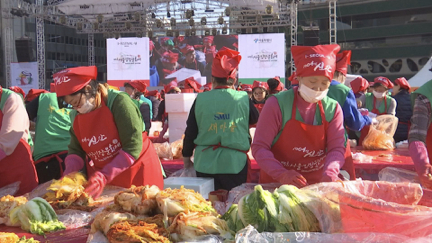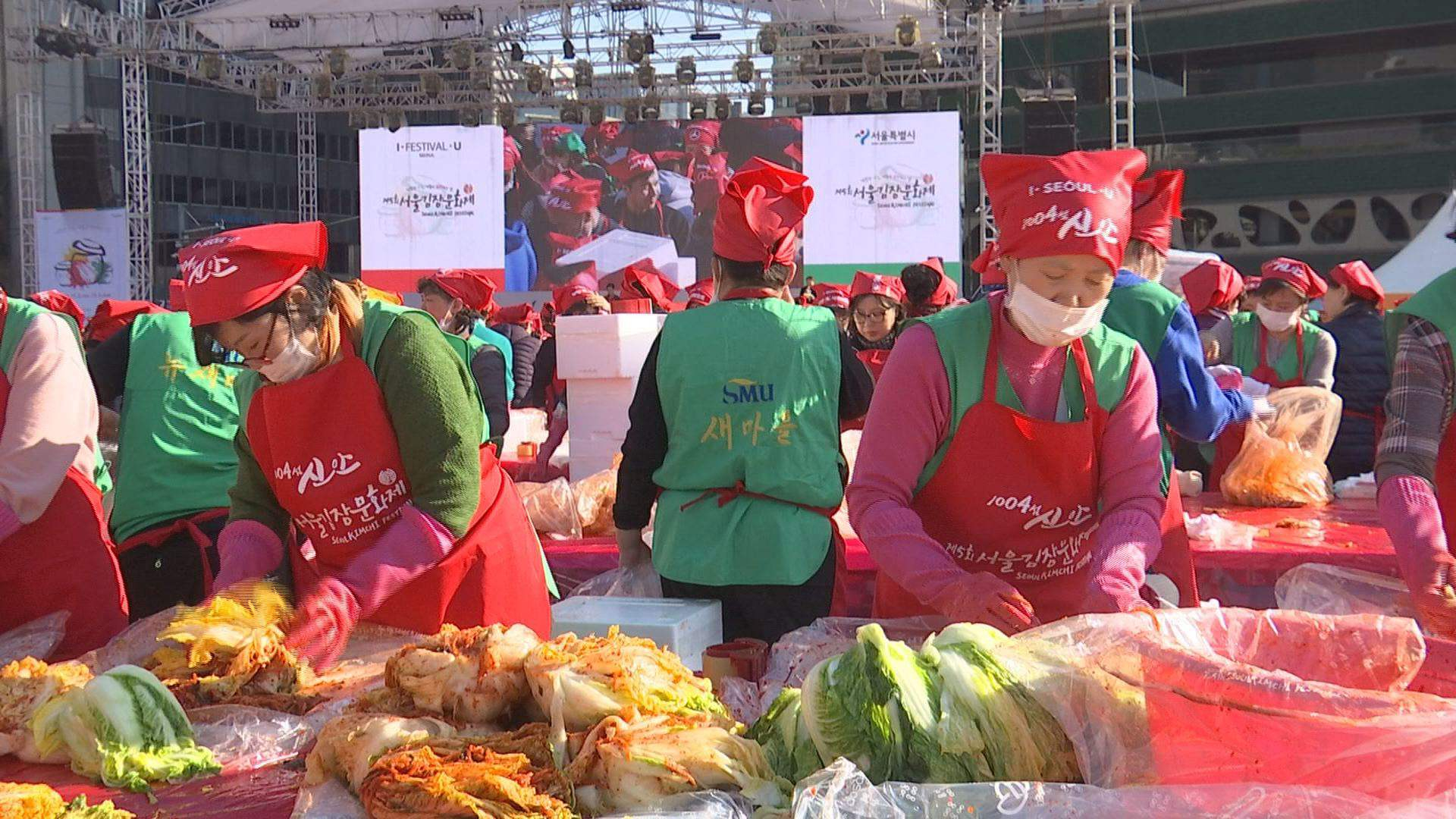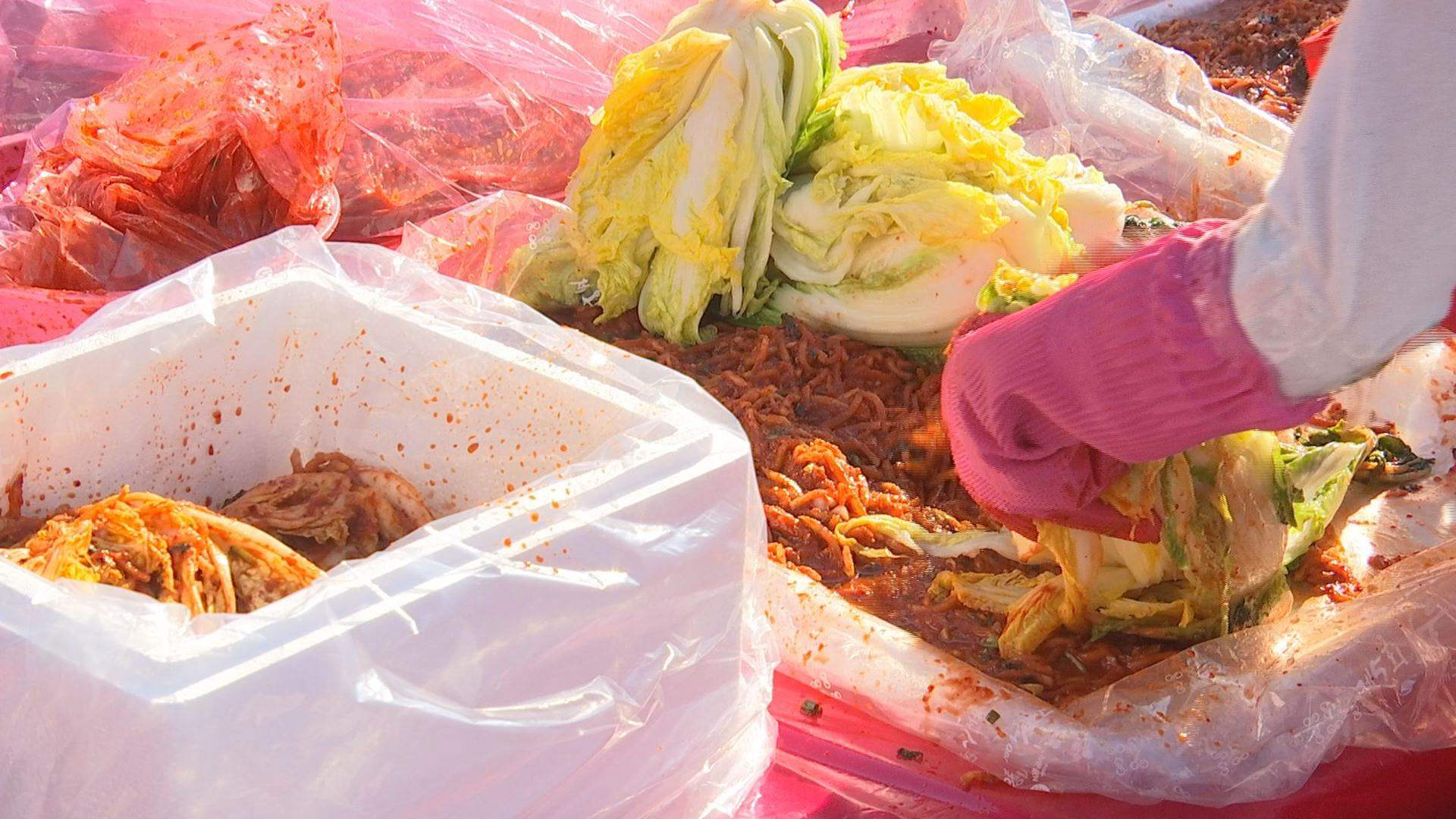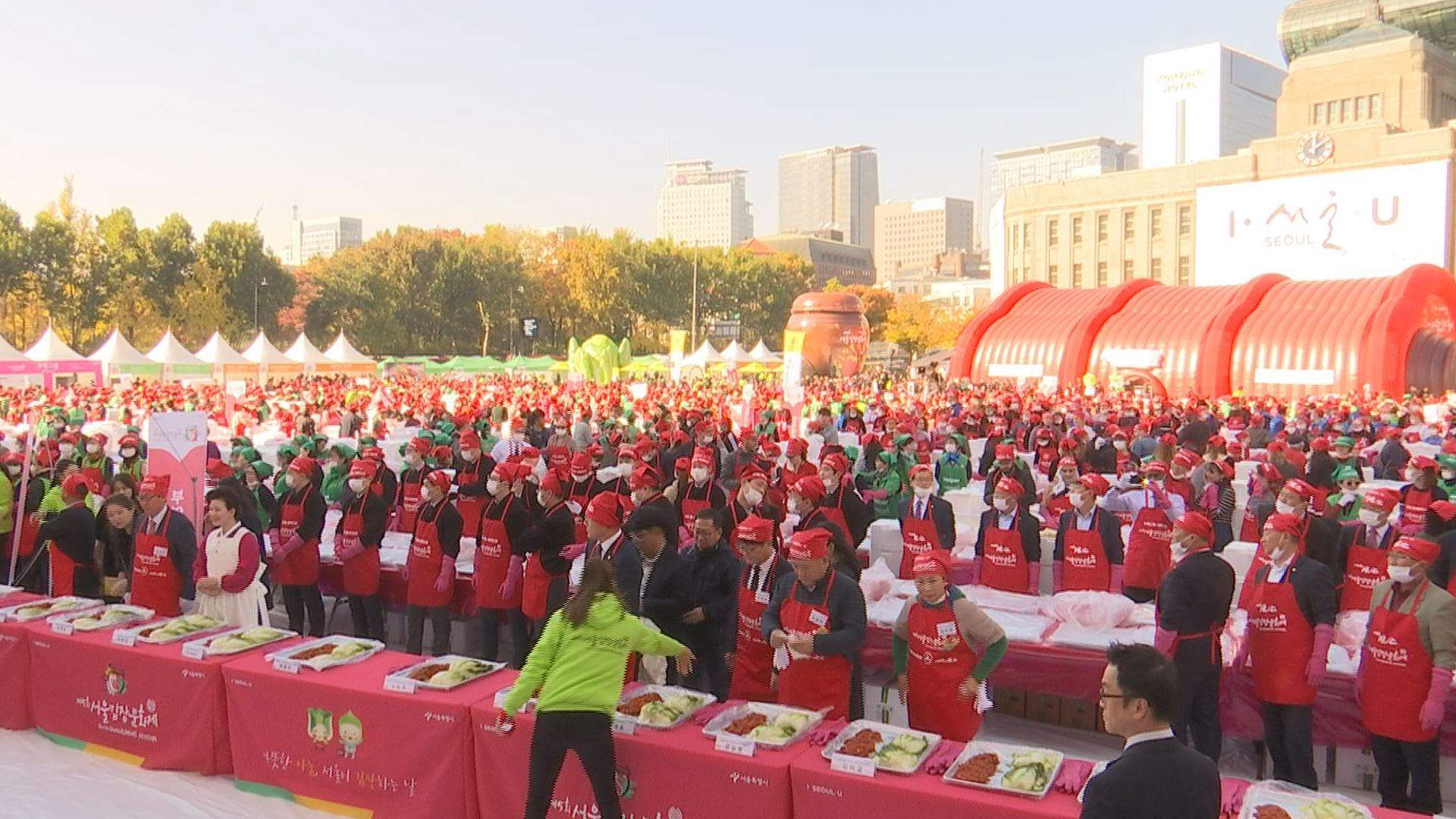
Food
20:58, 02-Nov-2018
Seoul gears up to break world record in kimchi making
Updated
20:32, 05-Nov-2018
By Shane Hahm
00:55

"Smile and say kimchi!"
The fifth annual Seoul Kimchi Festival is taking place at Seoul Square from November 2 to 4 under the theme, "Sharing the warmth, on the day of Seoul's kimchi-making."
The process of making kimchi ahead of the cold, winter months is known as gimjang. It was officially designated on the UNESCO Intangible Cultural List in 2013.

Thousands volunteering at the festival to make kimchi ahead of the cold, winter season in Seoul, South Korea. /CGTN Photo
Thousands volunteering at the festival to make kimchi ahead of the cold, winter season in Seoul, South Korea. /CGTN Photo
Gimjang is a communal activity, traditionally done in groups. It's common to ask, "how many heads of cabbage did your family make this year?" Families try to outdo one another and wear as a badge of honor the effort put in – like how Americans will brag about the weight of their Thanksgiving turkey.
Some 6,000 volunteers are expected to make 165 tonnes of kimchi this year at the festival. Finished goods will be distributed to the underprivileged.
Participants evenly distribute prepared seasoning inside each salted cabbage leaf. Completed cabbage heads are wrapped in plastic and placed in Styrofoam boxes.
For Koreans kimchi isn't just a food item or side dish. Rather, it's a reflection of the Korean culture which traditionally emphasizes communal growth and prosperity.

Kimchi is a fermented side dish and the national food of Korea. /CGTN Photo
Kimchi is a fermented side dish and the national food of Korea. /CGTN Photo
Kimchi is a uniquely Korean dish eaten at virtually every meal. Cabbage kimchi is the most common, but hundreds of types of kimchi are thought to exist. It's rich in vitamins, dietary fiber and lactic acid created during the fermentation process.
The average South Korean is thought to consume up to 25kg of kimchi annually. But with busier lifestyles and a growing number of single-person households, kimchi consumption is falling.
In fact, South Korea runs a kimchi trade deficit, with much of the imported kind originating in China.

Thousands volunteer at the festival to make kimchi ahead of the cold, winter season in Seoul, South Korea. /CGTN Photo
Thousands volunteer at the festival to make kimchi ahead of the cold, winter season in Seoul, South Korea. /CGTN Photo
But kimchi is a diverse food ingredient, used in everything from stews and soups to pancakes and fried rice.
Visitors to the Seoul Kimchi Festival can learn about the history of kimchi, witness artisan chefs creating kimchi dishes, and savor the many kimchi meals on hand.
On Sunday, officials from the Guinness Book of Records will be on site to certify a new world record of people gathered to make kimchi, surpassing the previous record set last year.

SITEMAP
Copyright © 2018 CGTN. Beijing ICP prepared NO.16065310-3
Copyright © 2018 CGTN. Beijing ICP prepared NO.16065310-3